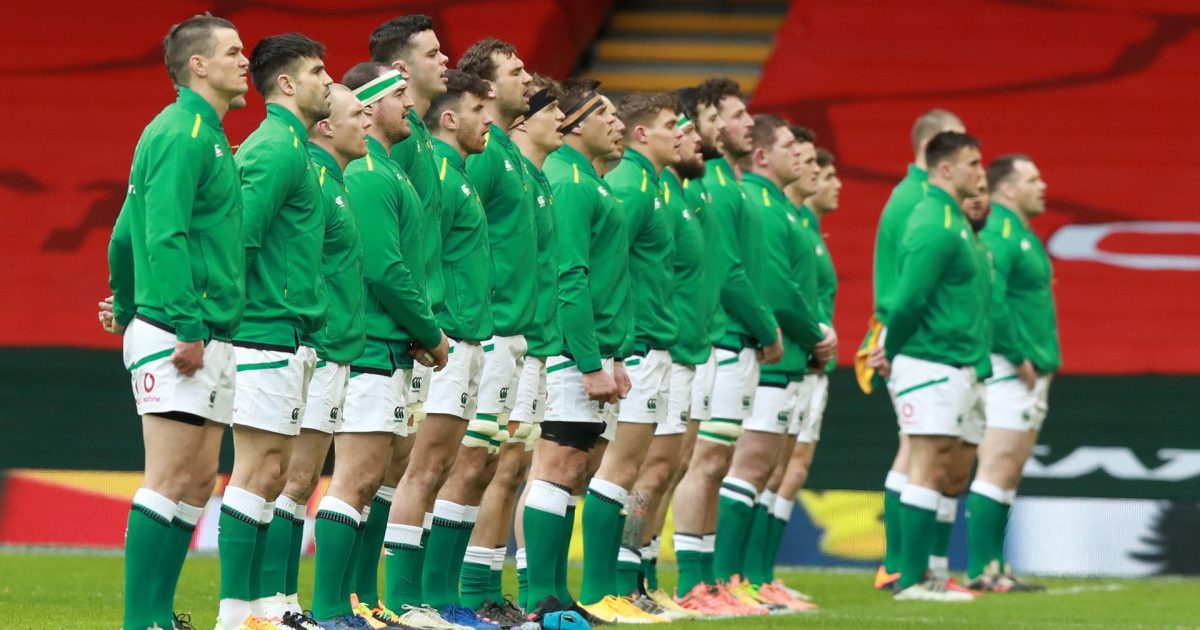Four changes for Ireland including fresh set of half-backs

Andy Farrell has made four changes to his Ireland team to play France on Sunday in Dublin in round two of the Guinness Six Nations following last Sunday’s 16-21 opening round defeat to Wales in Cardiff.
Peter O’Mahony’s three-match suspension for his red card against the Welsh meant a change would be needed at blindside, but the inclusion of Rhys Ruddock for his first Test start since October 2019 – and a first Six Nations start at the age of 30 – hasn’t been the only alteration to Farrell’s line-up as there are new half-backs and a new captain at second row.
Concussion return to play protocols have ruled out skipper Johnny Sexton and James Ryan. Billy Burns comes in out-half with Iain Henderson starting at lock and taking over the captaincy from Sexton.
The fourth change sees Conor Murray drop out at scrum-half due to a hamstring injury picked at training. His spot goes to Jamison Gibson-Park with the uncapped Craig Casey providing cover on the bench.
Other changes in the replacements see Ed Byrne promoted as back-up loosehead in preference to Dave Kilcoyne, Ultan Dillane takes over from the starting Henderson and Ross Byrne will cover the bench spot vacated by new No10 Burns whose single previous start in his four-cap Test career came against Georgia last November.
IRELAND (vs France, Sunday)
15. Hugo Keenan (Leinster/UCD) 7 caps
14. Keith Earls (Munster/Young Munster) 89 caps
13. Garry Ringrose (Leinster/UCD) 31 caps
12. Robbie Henshaw (Leinster/Buccaneers) 48 caps
11. James Lowe (Leinster) 3 caps
10. Billy Burns (Ulster) 4 caps
9. Jamison Gibson Park (Leinster) 6 caps
1. Cian Healy (Leinster/Clontarf) 105 caps
2. Rob Herring (Ulster/Ballynahinch) 17 caps
3. Andrew Porter (Leinster/UCD) 33 caps
4. Tadhg Beirne (Munster/Lansdowne) 18 caps
5. Iain Henderson (Ulster/Academy) 59 caps CAPTAIN
6. Rhys Ruddock (Leinster/St Mary’s College) 26 caps
7. Josh van der Flier (Leinster/UCD) 29 caps
8. CJ Stander (Munster/Shannon) 47 caps
Replacements
16. Ronan Kelleher (Leinster/Lansdowne) 7 caps
17. Ed Byrne (Leinster/UCD) 3 caps
18. Tadhg Furlong (Leinster/Clontarf) 45 caps
19. Ultan Dillane (Connacht/Corinthians) 17 caps
20. Will Connors (Leinster/UCD) 6 caps
21. Craig Casey (Munster/Shannon) uncapped
22. Ross Byrne (Leinster/UCD) 11 caps
23. Jordan Larmour (Leinster/St Mary’s College) 25 caps
“I'm pretty saddened and shocked by the inaccurate reports"#SixNations #IREvFRAhttps://t.co/lVJUIJ5TA4
— RugbyPass (@RugbyPass) February 10, 2021

























